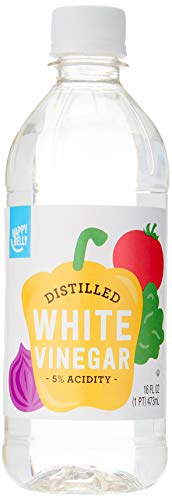Do you want to grow plants in a hydroponic system but wonder what type of water to use? If so, this post is for you. We've researched this topic, and here is what we discovered.
Distilled water is best for hydroponic farming. Introducing distilled water to plants ensures that they're getting contaminant-free water and nutrients. Also, scales and calcites rarely occur when using distilled water, so you can save money on maintenance and expect better yields.
However, there are some considerations you should be aware of in using distilled water for hydroponics. Read on to learn about the water required in a hydroponic system and more.
![Cucumbers grown in a modern hydroponic greenhouse on a rock wool substrate, Should I Use Distilled Water For Hydroponics? [Here's What You Need]](https://gardentabs.com/wp-content/uploads/2022/10/69.-Should-I-Use-Distilled-Water-For-HydroponicsHere_s-What-You-Need1.jpg)
Should You Use Distilled Water For Hydroponics?
Water quality is vital to every farming practice. Several factors should be considered in quality water, such as salt, pH level, and alkalinity. With that, choosing the best type of water is of utmost importance to farmers.
In a hydroponic system, water should be thoroughly treated to eliminate pollutants. Water that undergoes a distillation process is relatively free of salt and impurities and has a neutral pH level.
You are encouraged to use distilled water if you want to have an effective and efficient hydroponic system. Plants watered with distilled water have been found to grow faster and to be healthier.
Check out this purified water on Amazon.
What Are The Different Types Of Hydroponic Systems?
A hydroponic system is a system of cultivating plants in a nutrient-rich solution with minimum to no soil. A hydroponic system requires sunlight, water, oxygen, and carbon dioxide for plants to grow.
Let's discuss what these systems are and how they work. Some of these commonly used methods are listed below:
Nutrient Film Technique
The nutrient film technique (NFT) is the easiest and most reliable hydroponic method to follow. This system is composed of long channels filled with nutrient solution.
Holes are created in containers for mounting the plants. Plants manage to grow in these holes while the roots are soaked in the channel.
Aeroponic Approach
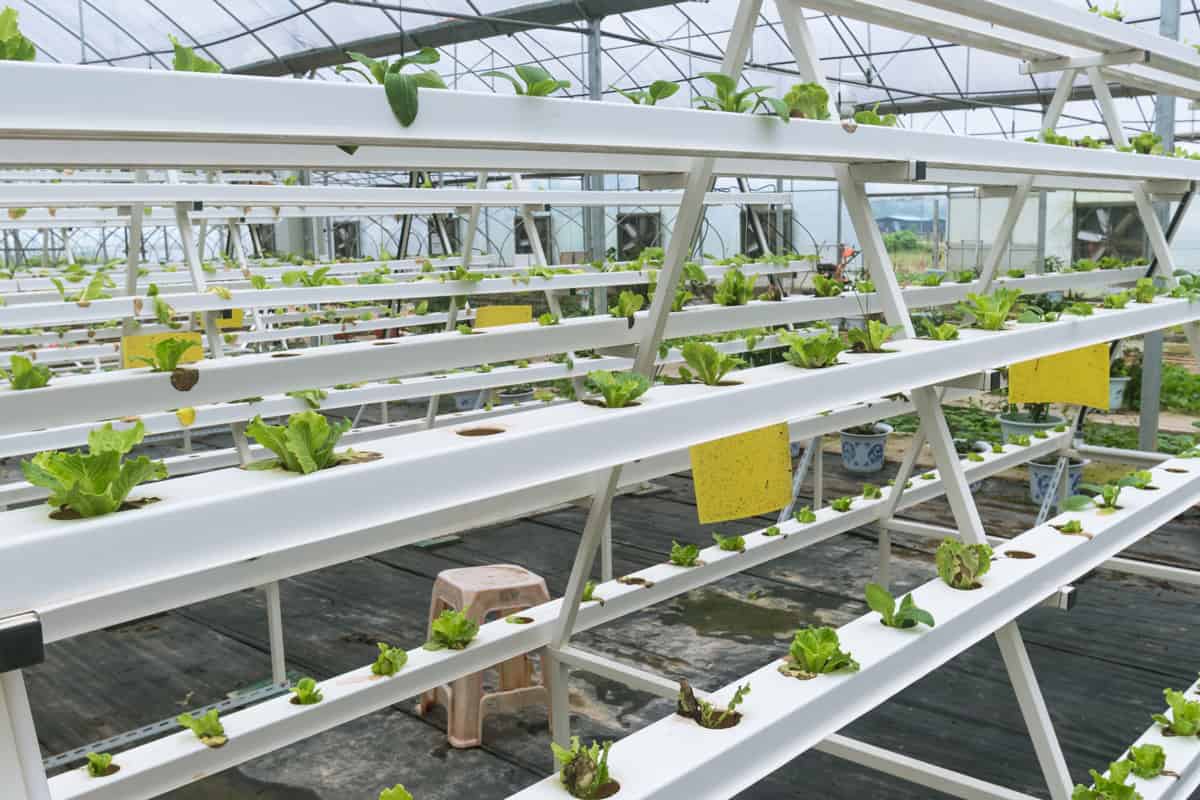
As with NFT, plant roots are submerged in water. However, nutrients are not mixed in the water.
Rather, the roots are misted with a nutrient solution either constantly or intermittently per hour. A water refiner is installed to maintain the quality of water throughout the entire process.
Raft/Pond Scheme
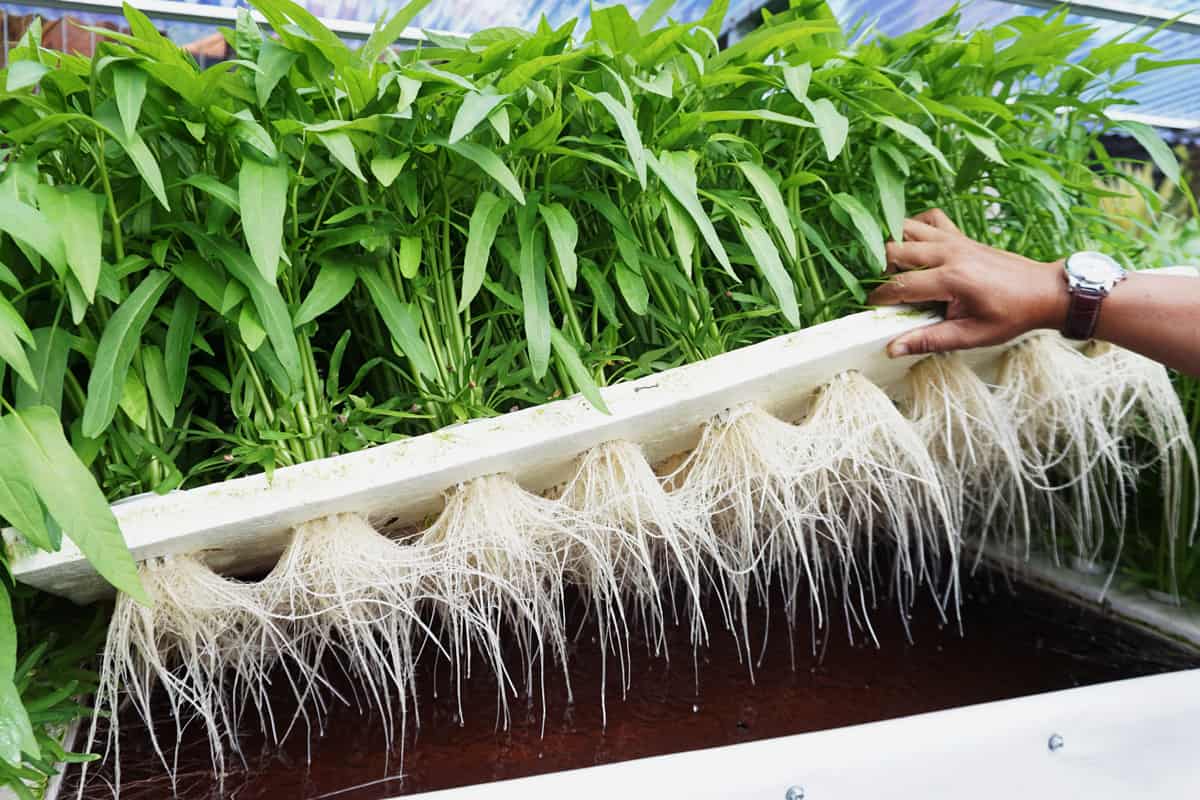
This hydroponic method is commonly referred to as a deep flow system. It is associated with a wide body of water, like a pond.
Plants hang above water and only roots are immersed under water permeated with nutrients and minerals. Typically, aerators and water pumps are installed to regulate the flow of oxygen and ensure that nutrients are fairly distributed to plants.
Aero-hydroponic Setup
The aero-hydroponic system is a combination of aeroponics and a deep flow system. It is unique because some roots are mounted above water, while other roots are immersed in the reservoir.
A spinner is a set up to create continuous misting, thus maximizing the availability of oxygen and dissolved nutrient solution.
Hydroponic Drip System
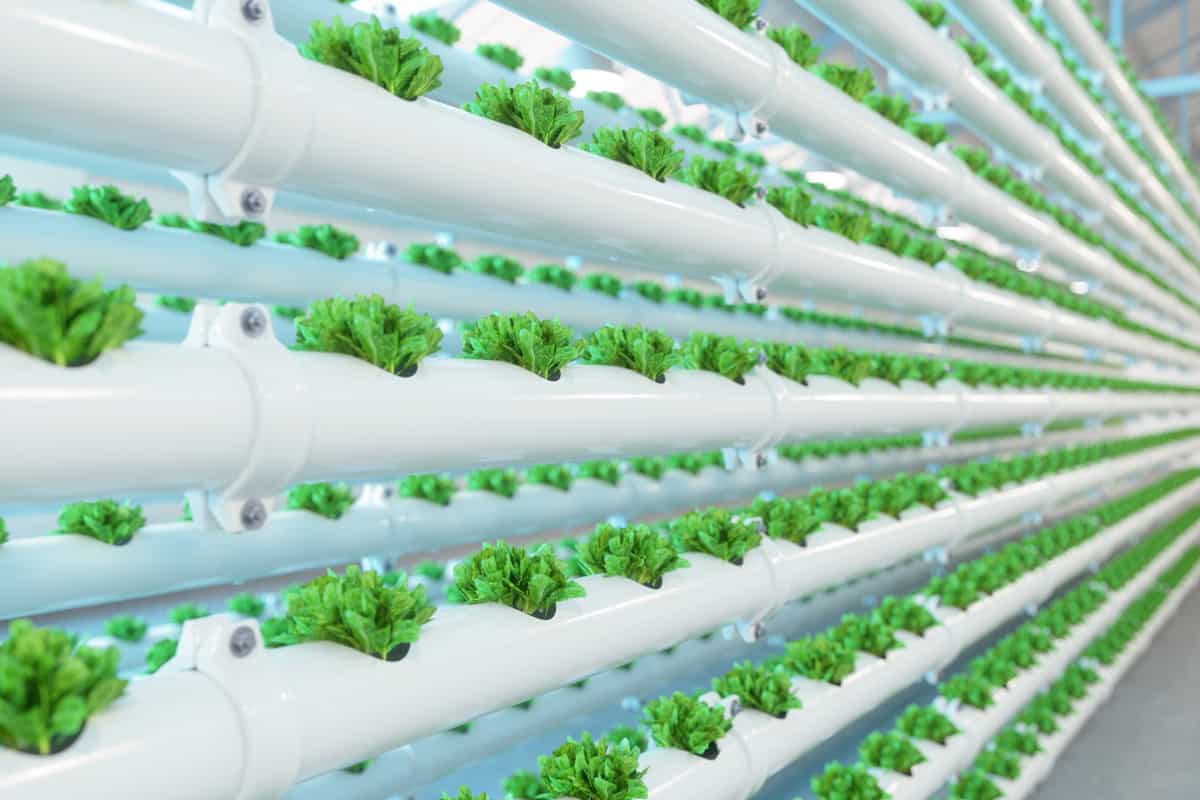
This hydroponic method uses a drip irrigation system to water the plants. The flow of water is regulated using either a water pump or a gravity-based one.
Each plant container has a drip emitter that allows you to control the amount of nutrients and water supplied to the plants. This system is automated since a timer is required to manage the flow of water throughout the day.
Check out this irrigation/hydroponic dripline on Amazon.
How Often Should You Change Hydroponic Water?
Water plays an important role in a hydroponic system. If you are concerned about the same water circulating in your hydroponic system then you should know when to change the water in the reservoir.
The frequency with which you change your water varies on the capacity of your hydroponic system. Also, how often you change the hydroponic water is based on pH tests and alkalinity results.
Based on the above considerations, changing water is a bit complex. Ideally, you should change the water when the reservoir is surmounted with water. You can do it regularly or change the water once a week, depending on the size of your hydroponic system.
Check out this digital pH meter tester for water on Amazon.
How Much Water Does A Plant Need Daily In A Hydroponic System?
Plant water intake is significant to hydroponic farming. To achieve a successful and productive hydroponic system, you need an ample supply of water.
About 10% to 16% of water is needed by a hydroponic system to achieve an equal volume of yield as traditional farming. As a general rule of thumb, water intake needed by plants depends on their size.
Small, medium, and large plants require 1/2 gallon, 1 ½ gallon, and 2 ½ gallons, respectively.
How To Manage Nutrients For A Hydroponic System?
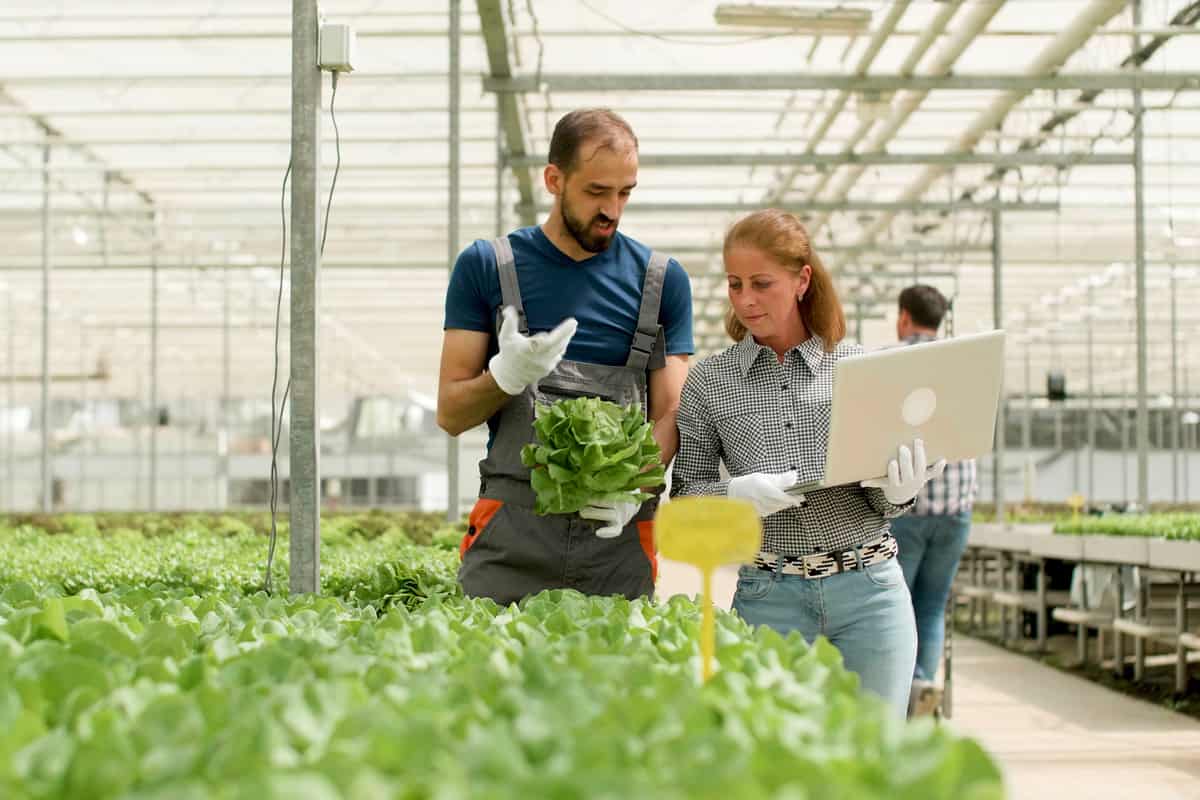
Nutrients are vital when it comes to growing plants. In a hydroponic system, nutrient management plays a critical role to achieve successful farming.
The nutrient solution applied is among the factors such as alkalinity, pH, and salt that need consideration in a hydroponic system. Nutrients should be added to the water every morning between 6:00 and 8:00 am.
Make sure to apply the nutrient solution only to the roots. Also, renew your water once a week. To have a flourishing hydroponic system, you must learn how to manage the accurate nutrient solution and eliminate toxic compounds.
What Is The Correct pH Level for Hydroponics?
Several factors affect how plants grow in a hydroponic system, including nutrients, water, sunlight, and even pH level. Knowing the right pH level of water for hydroponics will help you understand how it affects plant growth.
However, the pH varies depending on the solution applied to the hydroponic system. The pH influences the effectiveness of nutrients present in water provided that each nutrient requires a specific pH level.
Too low or too high a pH is not good for your plants. Maintaining the right pH is a must. Hydroponics should have an optimum pH level range from 6.0 to 6.5 to make nutrients available for plants to grow.
When the pH level is below the minimum requirement, plants are expected to have calcium, magnesium, and copper deficiency. When the pH level is higher than 6.5, iron deficiency may result.
How To Maintain The Right pH Level For Hydroponics?
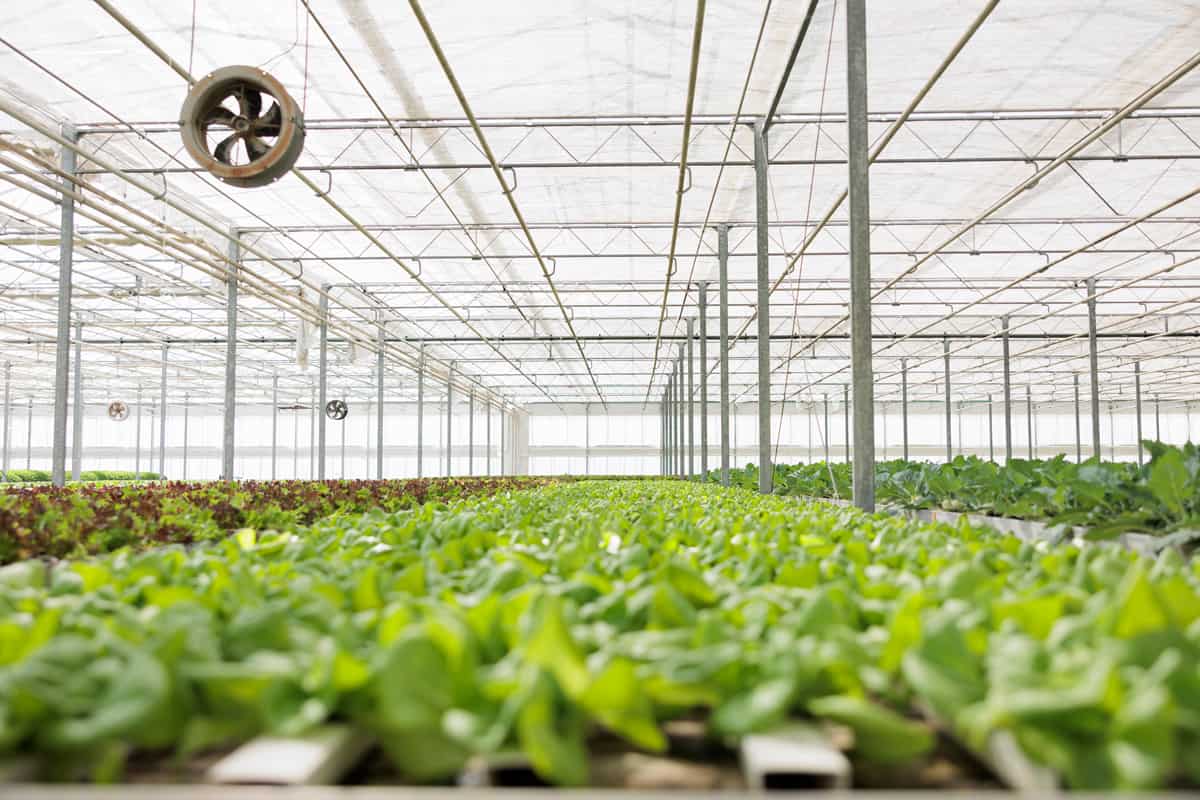
Maintaining the right hydroponic water pH balance is the goal of every grower. The quality of water and growing medium affect how you maintain a pH balance.
To keep your pH on track, monitoring is essential. Daily monitoring allows you to ensure that pH is at the optimum range. Some of the agents are presented below:
Try a pH compound
Use store-bought pH compound. The pH in a hydroponic system changes over time. If your pH is low, then you can use pH up.
If you have a higher pH, you can use pH down. When you use these compounds, you'll get familiar with the amount you need to add to attain the ideal pH range.
Check out this hydroponic pH up and down kit on Amazon.
Use distilled vinegar
This method is applicable only if you have a small hydroponic system. Using distilled vinegar is an easy way of modifying the water pH level.
Commercially available vinegar is distilled and has 5% acetic acid, enough to lower the pH when mixed with water. Keep in mind that this method demands thorough monitoring and frequent adjustments.
Check out this distilled vinegar on Amazon.
How To Dispose of Water From A Hydroponic System?
Most wastewater from a hydroponic system is often saved by farmers who need a water supply. You can dispose of and recycle wastewater using a purification or filtration process.
One of the most effective methods for purifying water is desalinization technology.
However, it has been found that recycled water results in plant growth abnormality and smaller harvests. Recycled water should be sterilized to minimize toxic chemicals and inhibit pathogen buildup.
Check out this water filtration system on Amazon.
Final Takeaways
The primary factor that you need to consider in hydroponics is the quality of water to use. Each type of water has a distinct pH level. When the pH is either beyond or behind the ideal pH, nutrient deficiency and chemical toxicity can result.
If you want to start hydroponic farming right away, distilled water is the best choice. Distilled water is suitable for hydroponic farming because it is clean and free of contaminants, which is ideal for plants.
There are several methods of growing plants hydroponically. If you want to learn more about hydroponic farming you can read through these posts:
How To Grow Lettuce In A Vertical Garden?





